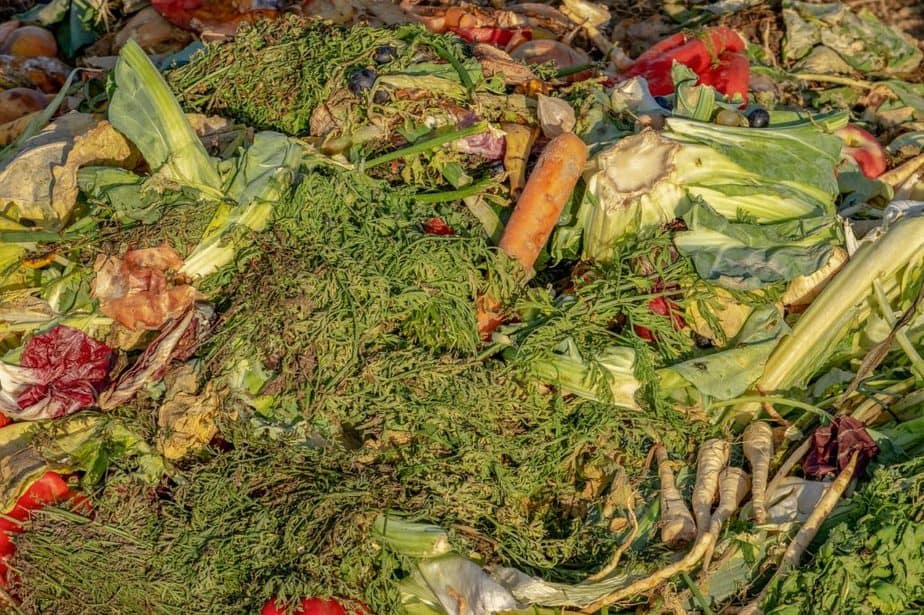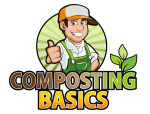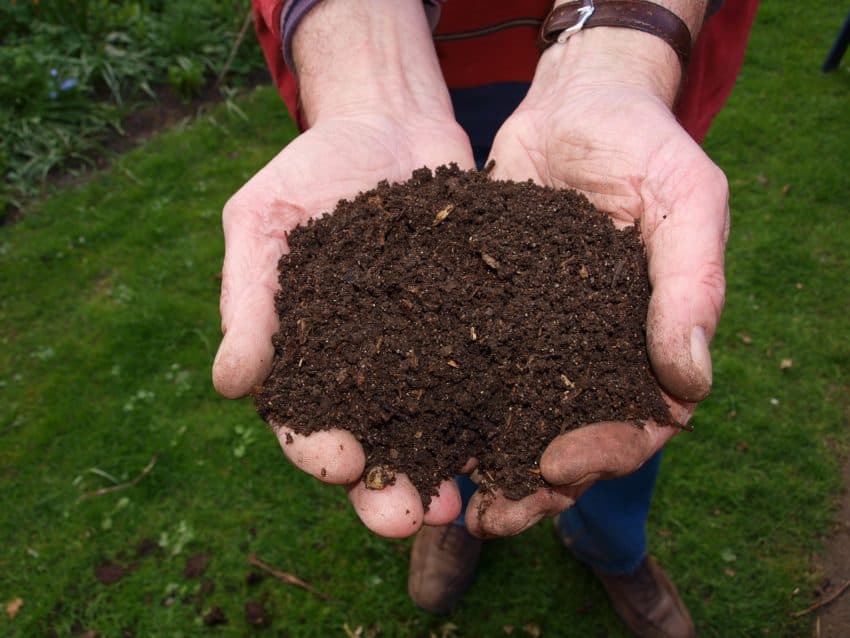In one form or another, composting has been
around ever since man started planting seeds by poking holes into the ground
with sticks. Over time, our skills of growing crops have advanced and so has
our skills of creating compost.
Through the ages composting has taken many forms; improved techniques have been
introduced, but its purpose is still the same. It is the gateway to a bumper
harvest.
The beginner and the veteran gardener
For homeowners, there are generally two types of composting methods or approaches
that one tends to take.
One style is by the enthusiastic novice, who spends some time and effort
gathering household waste such as grass clippings, dry leaves, and other
organic waste that can easily break down into compost at some point in the
future.
The other type of compositing is done by those of us who feel a little more
engaged and eager to experiment with the various methods of composting, trying
to come up with the quickest and most efficient way to produce that black gold
for the garden. These are the ones who learn how to monitor temperatures, pH
and moisture levels and turn the piles as necessary to achieve the best
results.
Just like with everything else related to gardening, the best compost takes effort and time to create. Composting is hardly a case of dumping organic material in a bin somewhere in your garden and letting it turn into magic by itself. That often leads to a cold pile of compost which may take more than a year to decompose fully. In that cold pile, weeds seeds might survive- these will turn your garden into a colony of villainy plants.
Composting is really a year-long process that truly never ends. There are busier times of the year like the Spring and Fall times, when materials are plentiful, and it can almost seem overwhelming to get everything into your pile or boxes.
Then there are the times like the summer when nothing is growing and therefore nothing is going into the compost bins. And then in the winter. Well, noting really is going on during that time unless you are really into your composting. For that you could check out our Can you compost during the winter page for more information.
Contrary to your imagination, composting is not tedious or smelly. All it takes to create best compost manure understands the basics of the natural decomposing process. It would help to learn about what to put into it, how to speed up the process and how to ensure it doesn’t reek. Let’s get down to business.
What is Compost?
Compost refers to decomposed organic
matter. Organic matter is anything that is biodegradable, comprising of carbon
elements. During composting, the right temperature, moisture, and pH are set
for bacteria to break down organic matter and transform it into a natural “fertilizer”
for your lawn and garden.
You can create compost piles using household waste like banana peels and eggshells or garden waste like straw and leaves. Some experts estimate that some household waste can contain up to 40 % of organic matter that can be used to nourish your soil before planting. For a compost heap weighing approximately 100 kg, you can expect to get around 30 kilograms of pure organic compost!
You end up with less compost material in the end to the fact that during the decomposition process, carbon dioxide is broken down, and water is lost into the atmosphere thereby reducing the original size of the compost heap. When the temperature of a properly produced compost pile rises during decomposition, weed seeds and disease-causing germs perish from the heat.
What materials can you compost?
For materials to be considered to be “compostable”, they are either carbon or nitrogen-based. It is advisable to mix both carbon-based and nitrogen-based materials in ratio 3: 1 during the process. Too much nitrogen can make the compost stink and slow the activity of the decomposing bacteria. Carbon materials facilitate the passage of oxygen to sustain the microorganisms in the compost pile.
From cucumber ends, carrot peels, pumpkin leftovers, and vegetable scrap, you can compost a wide range of things that usually end up in the dustbin. Other things that can go into the pile include tea leaves, coffee filters, and herbs. You can also introduce gardening waste like dead flowers or plant trimmings.
Green compost materials
They carry much nitrogen which is a necessity in the decomposition process. These materials should make up no more than a third of your whole compost pile. If these materials are in excess amounts, they will lead to smelly compost when the nitrogen in them converts to ammonia. Green compost materials include: • Grass cuttings
- Fruit Peels
- Vegetables
- Fresh flowers
- Coffee grounds
Brown compost materials
Brown compost materials are rich in carbon, and they add the lightness and
fluffiness to a compost heap. Majority of items in your compost pile should be
brown materials to counteract the nitrogen and feed microorganisms. Brown
compost materials include:
- Eggshells
- Paper towels
- Cotton fabrics
- Dryer Lint
What not to compost
There could be many decomposable materials in your home, but not all of them
are ideal to include in your compost pile. Some items can be harmful both to
the soil and plants and should, therefore, be disposed of in a waste bin.
Animal products such as butter, meat, fish, milk, and yogurt will not fare well in a compost pit. Including them in a pile would create a stinky mess detectable even by your farthest neighbors. These materials also overheat and attract a horde of pests such as rats.
Pet poop like cow dung or bird droppings is not good for compositing either. These wastes might contain diseases and bacteria from the animal’s body. These could be transferrable to the soil and plants.
Newspaper and magazines are not ideal for composting. While the plain paper is a good source of carbon for your compost pit, colored paper like some glossy newspapers and magazines contain inks that are made with heavy metals. That can turn your compost pile into a toxic mess.
Composting mistakes to avoid.
It is hard to get it wrong. It is a common belief that no matter how you do it,
organic materials always find a way to rot away. That’s true, but how can you
ensure that you get perfect compost that doesn’t stink, doesn’t attract pests
or cause a health risk?
- Using animal products
As mentioned earlier, animal products will turn your compost into breeding grounds for pests.
- Using too little or too much water
To get the best results with your compost, you need to add in a bit of water to so the bacteria, and another microorganism can get the moisture supply necessary to break down organic waste. Dry compost piles attract insects such as ants and wasps. However, too much watering can suffocate the decomposing bacteria.
- Compacting the compost too densely
There needs to be a consistent supply of fresh oxygen for the bacteria and fungi to do their work. If your compost in your pile is too dense the oxygen supply would be cut off leading to an ammonia-like odor. You can loosen up with regular turning and adding materials such as twigs and cardboard boxes.
- Purchasing worms and bacteria kits for your compost
It is a common mistake for new gardeners to use earthworms and bacterial inoculators to speed up their compost. The truth of the matter is that these products are a marketing gimmick. From the very first day, bacteria and warms will be naturally attracted to your compost pile. Don’t waste your money on the commercial warms and inoculators.
The Importance of Compost

Compost immensely improves the water and oxygen retention capacity of the soil. This humus enriching content nourishes the ground with many helpful bacteria and fungi. These microbes also help to speed up nutrient absorption in plants, making them healthier and stronger.
Healthy plant-soil environment
Creating a healthy ecosystem of microorganisms in the soil is important in
plant beds. When everyone is using synthetic fertilizers to nourish their
plants, you can achieve even better results by top dressing with compost
manure. Commercial-grade fertilizers are known for degrading soil quality and
harming the soil ecosystem. Using such fertilizers is not sustainable- after a
few years, it would be hard to grow anything in your garden.
Compost helps to reduce greenhouse gasses
Usually, the household wastes sent to landfills lead to the formation of
greenhouse gases during incineration. Composting household wastes can by a
great extent lead to the conservation of the planet by reducing greenhouse gas
emission and reusing waste for the benefit of the environment. Composting is,
therefore, a personal role you can play to combat the problem of global
warming.
Compost nourishes the soil
If your plants have been struggling to grow due to poor soil quality, you can
change the situation using compost manure. Compost helps to regenerate overused
soil by facilitating the production of helpful microorganisms which turn
organic matter into humus. Any soil expert will tell you that humus plays a
vital role in retaining moisture and improving the nutrient capacity in soil.
Compost helps to detox the soil
Studies by the United States Environmental Protection Agency show that compost
neutralizes odors and toxic organic compounds in the soil. If you are gardening
in an area previously affected by oil spills or burnt plastic, composting can
help to remove all toxic substances released in the soil. It is the same case
if you are trying to bounce back a garden that has been overtaxed with
pesticides and herbicides.
Compost is a solution to soil erosion
You can apply compost on hill slopes or use and compost filter socks to improve
the long-term quality of the soil by reducing stormwater. When used in this
manner, compost layering should be up to 2 inches in depth. This method is
highly effective in slowing the flow of water.
The woody part of the compost helps to increase the surface roughness on the slopes to slow the flow of runoff water and make it less erosive. Compost also helps to improve the rooting of grass and shrubs in these areas, thereby safeguarding the soil beneath.
It’s a money making/ money saving venture
You don’t have to pay through the nose to afford synthetic fertilizers for your
plants. A little DIY compositing will lead to a higher yield. If you are
gardening fruits and vegetables, you can sell the excess produce for more
money. However, it doesn’t stop there. Compost introduces a host of different
helpful microbes into the soil- these will help you tackle pests and weeds
without having to rely on pesticides and herbicides. You will find this
cost-effective farming technique to be friendly to your wallet.
Composting helps you deal with the trash problem
Waste disposal is a significantly growing challenge today. Landfills are
filling up too quickly, and homeowners have to part with a fortune every time
the garbage truck turns around. The EPA estimates that about 50 % of all things
we trash are decomposable. Compositing, therefore, is a sure way to reduce your
household garbage. When it comes to garden waste, composting straws, dead
leaves and flower trimmings is a way to clean up the garden and keep pests at
bay.
Water conservation
How regularly do you have to water your flowers or plants? Here is an awakening
fact- compost reduces the necessity to water your plants every now and then.
Using compost manure has the same effect as mulching, helping the plants to
pull through even in dry weather.
Improves air quality
Yard waste if left unattended can lead to foul smells and harmful insects. Then
again incinerating yard waste leads to the release of hazardous chemicals from
pesticides and fertilizers into the air. These chemicals lead to health
problems including asthma and other respiratory infections.
Saves fuel and energy
When you compost at home, there will be no need for transporting the material
to the landfill. Organic wastes are naturally bulky because they contain much
water. The fact that you will not be carrying these wastes saves you a pretty
penny in fuel costs.
Compost manure prevents plant diseases
The application of compost can help to lower the risk of plant root and leaf
diseases. Compost manure has hormone-like chemicals and chelates that stimulate
the growth of healthy plants.
Tips When Composting at Home
- Choose a good compost site at home: Choose a discreet corner in your garden. You don’t want to annoy your neighbors by setting your compost pit too close to their home. The site needs to have steady airflow and easy access to water.
- Choose a bin: You can buy a composter or make your bin.
- Add materials into the bin: Combine green and brown materials.
- Place woody materials at the bottom: It helps to promote aeration of the whole compost heap.
- Water your compost heap regularly: The compost heap should be moist but not wet.
- Monitor temperature: A successfully decomposing compost pile has a temperature of about 160?F.
- Turn the compost pile every few weeks.
Composting is a satisfying gardening endeavor. Compost has immense benefits including maintaining the right balance in the ecosystem and reducing environmental degradation and greenhouse gasses.

